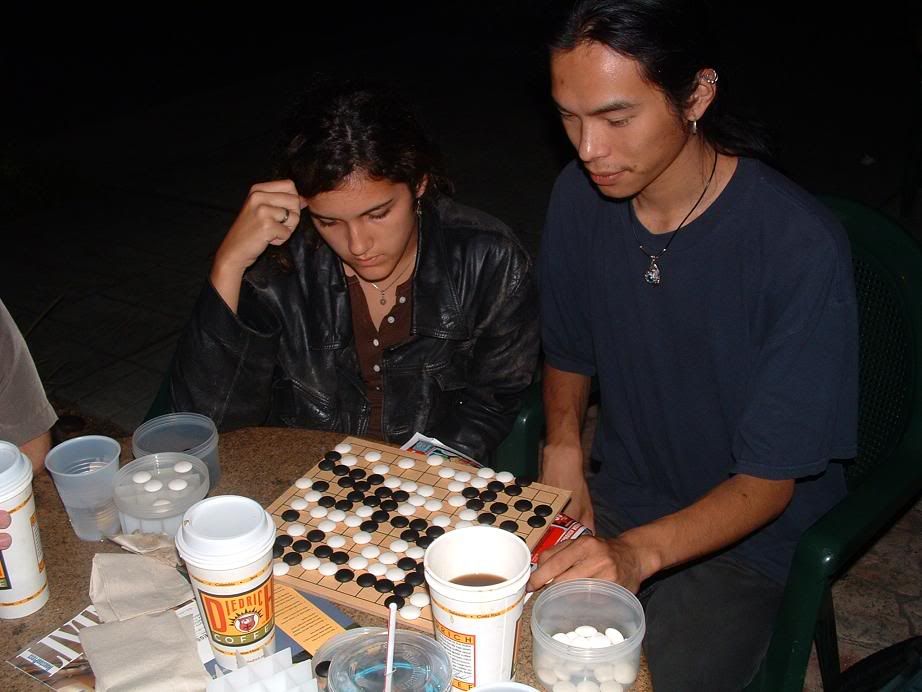Go is a quite popular game in Japan. However, it finds its origins in the 24th century BC, when an emperor, tired of his son's procrastination, devised a way to teach him strategy. And, tada! Go was born.
Go is played on a square grid of 9, 13 or 19 lines. The goal of the game is not to capture stones (although that might be useful), but to create the largest self-sustaining territory (namely, a territory that cannot be broken up by capturing stones).
The rules of the game are much easier than, say, chess (which I also play), but there is no proper way to start a game (although most players traditionally lay their first stone near the edge of the board, for strategic reasons) and the various combinations are endless (the infinity of moves possible in go is larger than the infinity of moves possible in chess). A wrong move here can have more disastrous consequences than in chess. Which is why, unlike chess, it is nearly impossible to program a computer to be a decent player.
Also, the Japanese novelist Kawabata Yasunari wrote a novel dedicated to one of the most legendary games of the 20th century, titled The Master of Go (which was translated into English).

Comments